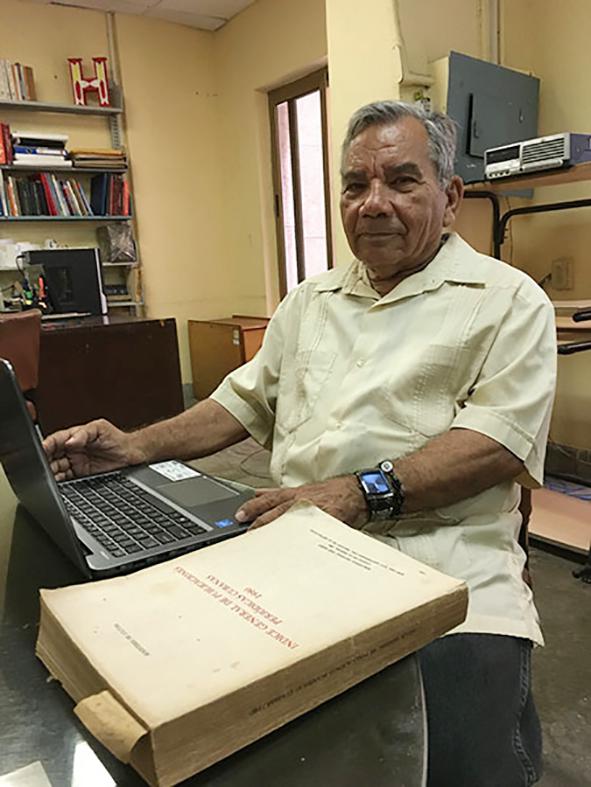
Tomasito between books and battles
Tomás Fernández Robaina will receive the Distinction for National Culture today
Author: Pedro de la Hoz | pedro@granma.cu
March 4, 2021 23:03:32 PM
Translated and edited by Walter Lippmann for CubaNews.

One fine day, looking for proximity between home and work, Tomás Fernández Robaina left behind his job as an accountant in a light industry establishment and joined the José Martí National Library. That was not a simple job exchange, but a radical change of life, because it was the beginning of the parallel takeoff of a substantive work in Cuban bibliography, and in the historical research related to the African legacy in national culture and the fight against discrimination because of skin color.
On the verge of 80 years of existence, five and a half decades of which he has spent at the prestigious cultural institution, Tomasito inspires respect and admiration for the impetus and passion he puts into every intellectual endeavor.
Those qualities nurtured the construction of one of his exemplary contributions to the field of island librarianship: the General Index of Periodicals. It was the result,” he recalled, “of an analysis of the indexes that had traditionally been prepared in the Library after the Revolution. As Salvador Bueno’s assistant, looking for information for the work I had to do in view of the popular literacy campaign, I realized that finding information was not very easy, because it was necessary to register a large number of directories. There were so many indexes that had been compiled that we really had to find a new way. I envisioned the project in two ways: to consolidate all the contents of the indexes that had already been compiled, and to begin to compile a repository that would include the contents of all the periodicals that were emerging”.
Having been the compiler of the Bibliografía de estudios afroamericanos (1969) and the Bibliografía de temas afrocubanos (1986) allowed researchers, professors, students and readers in general to have valuable tools of knowledge, and in his personal case, to confront sources that would be extremely useful for monographs and essays.
In 1990, one of his most far-reaching and impactful works, El negro en Cuba 1902-1958, was published. Although the author modestly stated that he was limiting himself to offering notes for the history of the struggle against racial discrimination, the documentation provided and the judgments derived from it, as well as the punctual record of the milestones, turn this essay into an essential reading.
Tomasito’s publications also include Hablen paleros y santeros, Recuerdos secretos de dos mujeres públicas, Cuba: personalidades en el debate racial and Identidad afrocubana: cultura y nacionalidad.
A member of the Cuban Association of Librarians (Ascubi) and of the Association of Writers of UNEAC-he is one of the most resolute activists of the José Antonio Aponte Commission-, Tomasito maintains, as a currency, to share what he has, to stimulate the spiritual growth of the new generations and never stop fighting to complete the work of social justice of the Revolution, especially with regard to the conquest of the fullest equality.

You must be logged in to post a comment.